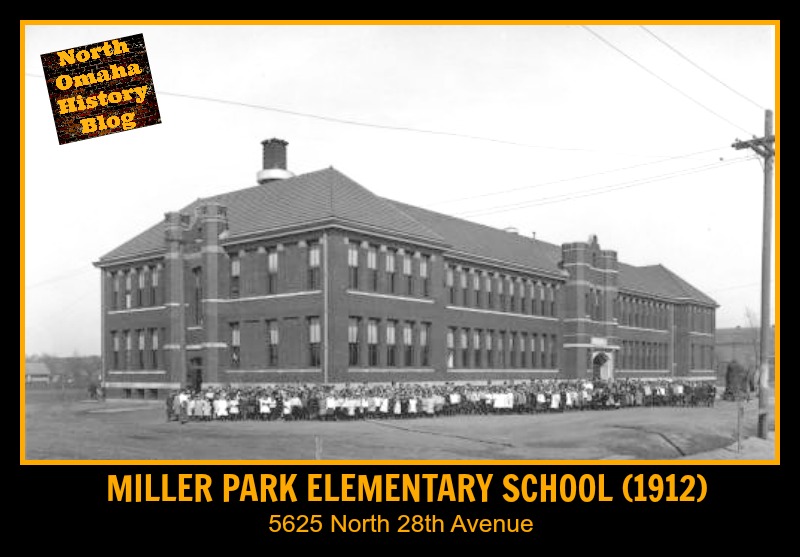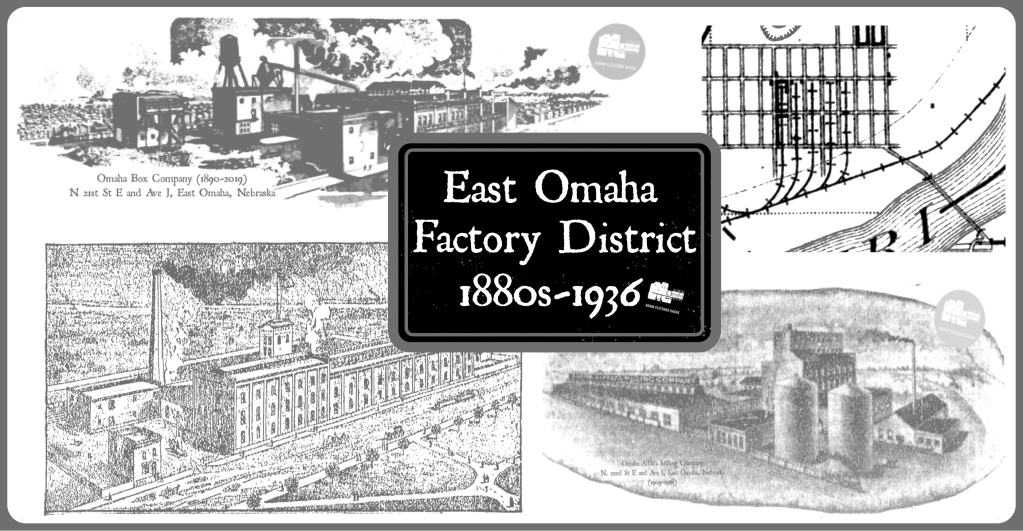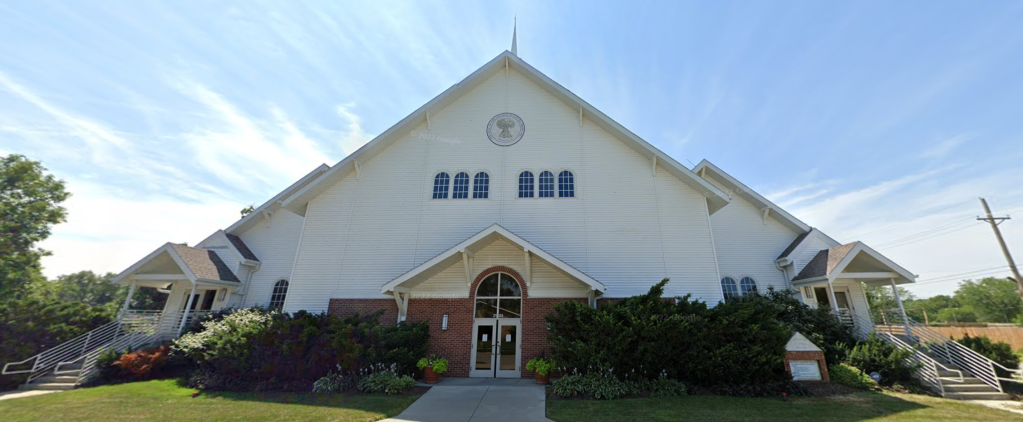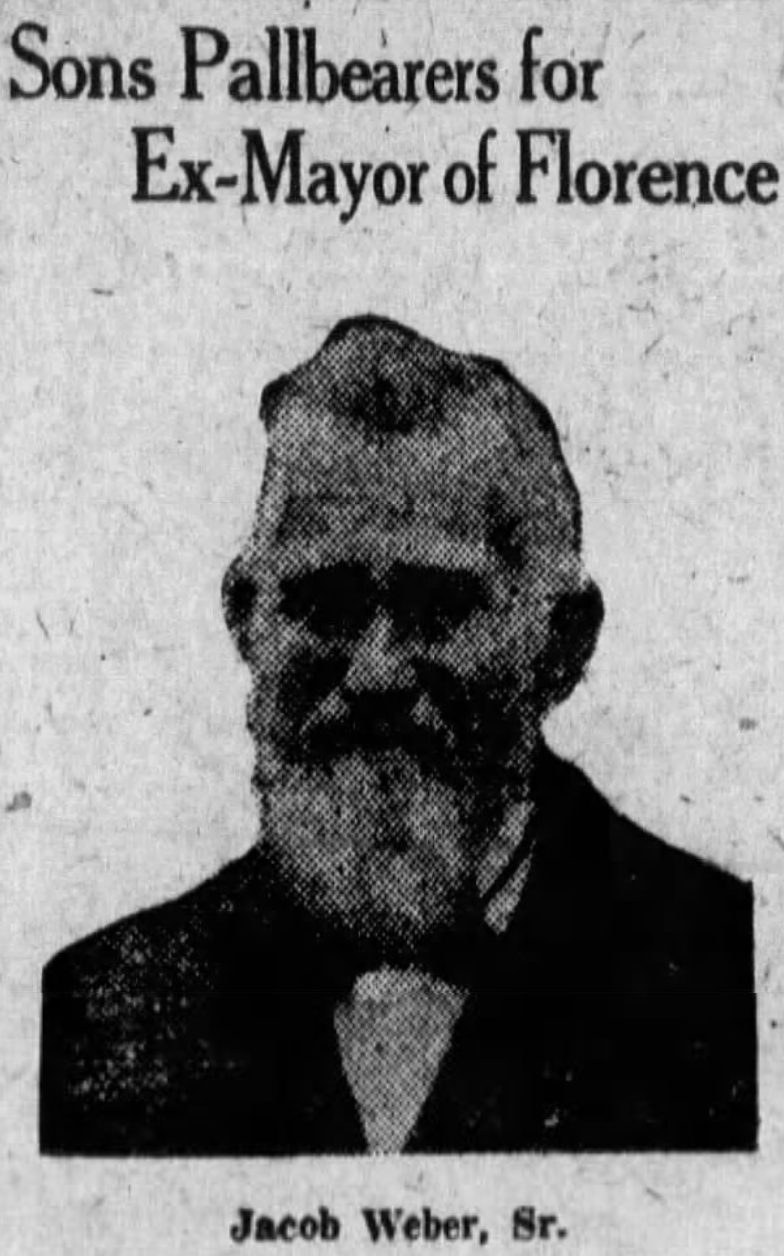Adam’s Note: I’m excited to introduce a new series for NorthOmahaHistory.com called Framed: J. Edgar Hoover, COINTELPRO and the Omaha Two Story. Written by author Michael Richardson (San Francisco Bay View, OpEdNews.com and Examiner.com), I believe this series tells a vital story missing from Omaha’s history. Its the story of men convicted with malice; a Black neighborhood terrorized by white supremacy; and justice long-sought and not gained.
July 6, 2017: Chapter 1
“Negro youths respond to the leadership of militant malcontents.”—J. Edgar Hoover, May 23, 1967.
Virile racism in Omaha, Nebraska was exposed by the downtown lynchings of George Smith in 1891 and Will Brown in 1919. In Washington, D.C., at the Bureau of Investigation, J. Edgar Hoover was at war with radicals. Hoover investigated Marcus Garvey and the Universal Negro Improvement Association and was convinced Garvey murdered a rival, influencing Hoover’s actions for the rest of his life. In 1940, Nebraska Senator George Norris called for an investigation of the FBI for abuse of authority. Conditions for black Nebraskans had not changed much over the decades. In the midst of rioting in 1966, Paul Young reported for duty as the new Special Agent in Charge of the Omaha FBI office.
July 13, 2017: Chapter 2
“My mother used to tell me to stay away from white people because they will hurt you.”—Edward Poindexter, on growing up in Omaha.
Edward Alan Poindexter was born in 1944 in Omaha at Logan Fontenelle housing project. Poindexter grew up on the Near-Northside in a segregated environment. The drowning death of his father when Ed was eight had a profound impact on him, unresolved until adulthood. After graduating high school Poindexter volunteered for the Army and was gone from Nebraska for six years. His return to Omaha led to Poindexter joining the Black Panther Party.
July 21, 2017: Chapter 3
“What were we but strangers to the land where we were born.”—Wopashitwe Mondo Eyen we Langa, From the Ancestor’s House
Wopashitwe Mondo Eyen we Langa was born David Lewis Andrew Rice in Omaha in 1947. Educated in parochial schools, Mondo was one of the few black students at Creighton Preparatory High School. Active in Catholic youth groups, Mondo became aware of racial discrimination as a teen. Mondo’s activism, beginning in high school, led to a job with Greater Omaha Community Action agency. Mondo grew more radical as he aged which led to his joining the Black Panther Party.
July 28, 2017: Chapter 4
“Incidents of violence by Negroes took place in Omaha.”—J. Edgar Hoover, March 6, 1968.
George Wallace came to Omaha in 1968 for a political rally, triggering rioting on the Near-Northside. At FBI headquarters a “racial conference” was held for supervisory agents and Omaha was added to the list of offices required to develop COINTELPRO counterintelligence proposals. Back in Omaha, Mondo was arrested and convicted of loitering for refusing to leave the scene of a disturbance between black youths and police.
August 4, 2017: Chapter 5
“The Omaha Police Department has instigated an harassment campaign.”—Paul Young, October 5, 1968.
Paul Young informed J. Edgar Hoover that the Omaha police had begun harassing the Black Panther Party. Young made three counterintelligence recommendations against the Black Panthers to Hoover. Young was told by Hoover the proposals were incomplete and needed more operational details. Mondo began duties as an outreach worker for the local anti-poverty agency
August 11, 2017: Chapter 6
“Near North Like Fires From Hell.”—Omaha World-Herald, June 26, 1969.
The Black Panthers organized a student group called BANTU at Technical High School in Omaha that became a target of the FBI. In 1969, the shooting death of fourteen year-old Vivian Strong by a policeman triggered three days of rioting in Omaha. Mondo attended the national United Front Against Fascism conference in Oakland sponsored by the Black Panther Party.
August 18, 2017: Chapter 7
“The imaginative attention necessary to produce effective results.”—J. Edgar Hoover, December 10, 1969
The Black Panthers disbanded the Omaha chapter, purging leader Eddie Bolden. Mondo and Ed Poindexter formed a local United Front Against Fascism group. COINTELPRO operations around the nation continued with lethal ferocity. In December 1969, Mark Clark and Fred Hampton were killed by a special police squad in Chicago and in Los Angles a shootout at the Black Panther headquarters captured national attention. In Omaha, Paul Young was ordered to submit a counterintelligence proposal against UFAF leaders.
August 25, 2017: Chapter 8
“Frightening sound of a riot pump shotgun lock and load.”—Edward Poindexter on encountering police.
Paul Young submitted a plan to ambush Black Panther newspaper deliveries and to accuse Ed Poindexter of fraudulently seeking bail money. COINTELPRO operations increased nationwide and even overseas as J. Edgar Hoover ordered increased pressure on the Black Panther Party. Bombings in Iowa and Nebraska appeared to police to be the work of black militants. Omaha police stepped up harassment of local black activists. The National Committee to Combat Fascism replaced the United Front to Combat Fascism.
September 1, 2017: Chapter 9
“I will never ever forgive the Black Panther Party for that.”—Edward Poindexter on being called a police agent.
President Richard Nixon complained to J. Edgar Hoover that he wasn’t doing enough to stop rioting in America. In Omaha, Mondo turned his attention to the controversial minister of the Zion Baptist Church, Rudolph McNair. Ed Pondexter traveled to Black Panther headquarters in Oakland. Three unsolved bombings occurred in Omaha. The Alcohol, Tobacco and Firearms Division sought a warrant to search the National Committee to Combat Fascism headquarters. Following a tip, three men were arrested with dynamite.
September 8, 2017: Chapter 10
“A woman screaming…”—Anonymous 911 caller, August 17, 1970
At 2:07 a.m. a 911 caller reported a woman screaming in a vacant house in Omaha. Responding police found a suitcase bomb instead. Patrolman Larry Minard, Sr. was killed and six other officers injured in the explosion. Within hours, the FBI was assisting the investigation. ATF agents took over the crime scene at dawn. A multi-agency task force called Domino was convened to solve the crime. Meanwhile, Paul Young talked with Deputy Police Chief Glen Gates and offered to have the FBI Laboratory make an off-the- record analysis of the 911 recording. On the streets, a police dragnet of the Near- Northside began. Twenty-five people were arrested for minor infractions. Detective Jack Swanson got a tip from the FBI that a white Cadillac was involved. Numerous calls throughout the day and evening from the public with information kept overworked police busy checking out tips and making arrests.
September 15, 2017: Chapter 11
“OK to do.”—J. Edgar Hoover, August 19, 1970
Omaha police announced they were sending a “voiceprint” of the 911 caller’s voice to the FBI Laboratory. Jack Swanson made up a list of thirty-eight black suspects to question including community activist Ernie Chambers. Lt. James Perry filed a Social Security card belonging to Johnnie Lee Bussby found by ATF agents at the bombed house. J. Edgar Hoover ordered the FBI Laboratory to not issue a report on the 911 recording. Eleven more people were arrested on the Near-Northside. Luther Payne, one of the men arrested in July with dynamite, claimed they obtained the explosive from an Omaha anti-poverty agency storeroom.
September 23, 2017: Chapter 12
“We believe that organized violence is necessary.”—Wopashitwe Mondo Eyen we Langa, August 20, 1970.
Omaha police were still receiving phone calls from the public about the murder of Larry Minard. The Omaha Star published an article, written before the bombing, where Mondo called for organized violence. Minard’s funeral was the largest in the city history. The funeral procession was two miles long. At FBI headquarters, J. Edgar Hoover gave his top two administrators an unexpected $250 incentive bonus. William Sullivan and John Mohr had approved Hoover’s plan to withhold a laboratory report in the Omaha case and Hoover was pleased with their performance. An informant’s tip provided a break in the investigation and Duane Peak came to the attention of police.
September 30, 2017: Chapter 13
“They are meant to be scapegoats.”—Ernie Chambers, August 23, 1970
The search for Duane Peak went on around the clock. The National Committee to Combat Fascism headquarters was raided by Omaha police and ATF agents. The raid team also searched Mondo’s house where Jack Swanson claimed he found dynamite in the basement. Swanson took the dynamite he said he found to a storage shed in rural Council Bluffs, Iowa, away from the police evidence vault. Deputy Chief Glen Gates and ATF Agent Thomas Sledge flew to Washington, D.C. to hand-carry evidence to the ATF Laboratory.
October 6, 2017: Chapter 14
“This should be an excellent disruption technique.”—J. Edgar Hoover, August 24, 1970
Police began arresting family and friends of Duane Peak. Police played the 911 tape recording to at least four people seeking to confirm Duane’s participation in the crime. Those arrested gave statements putting Duane and his older brother Donald Peak together with a suitcase shortly before the bombing. In Washington, a memorandum regarding the FBI Laboratory confirmed J. Edgar Hoover’s complicity in the counterintelligence conspiracy. Mondo surrendered. Donald Peak led the FBI and Omaha police to his brother’s hiding place. Interrogations of Duane Peak began. Although appearing cooperative, Peak kept changing his story.
October 13, 2017: Chapter 15
“It doesn’t make any difference what the truth is.”—Arthur O’Leary, August 31, 1970
During a deposition with prosecutor Arthur O’Leary, Duane Peak was told the truth did not matter. Peak’s new story was in conflict with his first statement to police and his later trial testimony. Details about construction and delivery of the bomb kept changing. Police got a report from the ATF Laboratory that dynamite particles were found in Robert Cecil’s trousers and Ed Poindexter’s shirt and that Cecil’s hands tested positive for dynamite. Poindexter was arrested for murder.
October 20, 2017: Chapter 16
“Turned against those two bloods.”—Duane Peak, September 29, 1970
Assistant U.S. Attorney William Gallup’s resignation was announced. Gallup quit in protest over a canceled ATF raid in July against the National Committee to Combat Fascism. The preliminary hearing against Ed Poindexter and Mondo was held in a circus-like atmosphere. The hearing featured contradictory testimony by Duane Peak, one story in the morning and a second in the afternoon. Peak wrote a self-confessional letter from the Fremont County Jail where he admitted betraying Poindexter and Mondo.
October 27, 2017: Chapter 17
“Might be prejudicial to the police murder trial.”—Paul Young, October 13, 1970
In October 1970, a subcommittee of the House Internal Security Committee opened hearings on national operations of the Black Panthers and activities in Des Moines and Omaha. Captain Murdock Platner testified about the Omaha bombing. Platner also testified before a Senate Judiciary Committee subcommittee about the bombing, contradicting some of his testimony before the House subcommittee. Paul Young wrote to J. Edgar Hoover that results from the 911 tape were not wanted because they might harm the police case.
December 17, 2017: Chapter 18
“It was impossible for them to get a fair trial.”—Frank Morrison on his duties as Public Defender
Judge Donald Hamilton denied motions to move the Minard murder trial outside of Omaha. Former Governor Frank Morrison was appointed as Douglas County Public Defender despite has inexperience with criminal law. Morrison, who represented Ed Poindexter, asked for more time to prepare for the murder trial. On March 8, 1971, the Media, Pennsylvania FBI office was burglarized. Political activists stole hundreds of pages of COINTELPRO documents. A massive FBI investigation was launched to solve the crime. Jury selection began in Omaha.
January 30, 2018: Chapter 19
“I observed that the side of his head was completely or nearly destroyed.”—Dennis Moran, April 2, 1971
On April 1, 1971, the controversial murder trial began with opening statements followed by testimony from police witnesses. The jury heard about a suitcase of many colors as witnesses gave differing descriptions. Duane Peak testified he watched the bomb be constructed by Ed Poindexter in Mondo’s kitchen. Raleigh House was identified as the source of the suitcase and dynamite. In Washington, at midpoint during the trial, House Majority Leader Hale Boggs called for J. Edgar Hoover’s removal over Congressional spying by the FBI.
February 7, 2018: Chapter 20
“I blew up that pig.”—Duane Peak to his sister Theresa
Duane Peak was cross-examined by defense attorneys. Cross-examination ended with a letter by Peak to his grandmother where he stated, “I was worse than the devil himself.” Both Peak’s sisters testified they heard Duane laughing about the murder and saw him and Donald with a suitcase shortly before the bombing. The prosecution began calling ATF witnesses for forensic testimony.
February 21, 2018: Chapter 21
“I was unjustly accused of a crime.”—Edward Poindexter, April 12, 1971
Police officers and ATF agents testified about the processing of evidence. Detectives Jack Swanson and Robert Pfeffer contradicted each other about finding dynamite in Mondo’s basement. The prosecution rested its case after calling thirty-two witnesses and submitting forty-two exhibits. Defense witnesses provided alibi testimony and contradicted claims of Duane Peak. Ed Poindexter testified in his own defense denying any role in the crime.
February 27, 2018: Chapter 22
“One more lie that Duane Peak told.”—Rae Ann Schmitz on Duane Peak’s testimony
Rae Ann Schmitz was an alibi witness for Mondo explaining he was at a party at her house at the time of the bombing. Schmitz also testified Mondo was with her when he allegedly met with Peak about picking up the bomb. Mondo testified in his own behalf, denying any role in the crime. The jury deliberated for four days before finding the two men guilty on April 17, 1971. Within an hour of their conviction the pair were rushed to the Nebraska State Penitentiary in Lincoln.
June 3, 2018: Chapter 23
“Although successful over the years, it is felt they should now be discontinued for security reasons because of their sensitivity.”—Charles Brennan, April 27, 1971
Growing public disclosure of stolen FBI documents caused J. Edgar Hoover to deny counterintelligence proposals and ordered Bureau employees to not discuss work outside of the office. Hale Boggs kept up his criticism of Hoover. On April 27, 1971, a memorandum terminating COINTELPRO operations was prepared as stolen FBI documents began appearing in newspapers around the country as public criticism of Hoover intensified.
October 2, 2018: Chapter 24
“The facts here indicate the advisability of an ad hoc approach.”—Hale McCowan, July 14, 1972
On May 2, 1972, Hoover died taking many secrets to the grave. Hoover’s death led to a shake-up of FBI management ending the Bureau careers of some while others jockeyed for position. The Nebraska Supreme Court upheld the convictions of Ed Poindexter and Mondo. FBI investigation of black extremists continued at strong pace. Criticism of the FBI continued to grow as details of Hoover’s reign came to light.
Chapter 25
“It is impossible for me to credit his testimony.”—Warren Urbom, July 5, 1974
The Watergate burglars and Richard Nixon’s downfall overshadowed the growing public awareness of how corrupted the Federal Bureau of Investigation had become. The attention on Watergate resulted in not a single FBI administrator being punished for years of COINTELPRO crimes against American citizens. Freedom of Information releases began showing the vast scope of COINTELPRO. U.S. District Judge Warren Urbom ruled that Mondo’s rights were violated with an illegal search of his home and ordered Mondo released or be granted a new trial.
Chapter 26
“Deprived of a basic constitutional right.”—U.S. Court of Appeals, January 28, 1975
The Senate created the Select Committee to Study Governmental Operations which became known as the Church Committee after its chairman, Senator Frank Church. COINTELPRO was one of the areas of inquiry. The death of Clyde Tolson and ongoing Church Committee hearings renewed a search for J. Edgar Hoover’s secret files and for the first time made the FBI account for COINTELPRO actions. Ramsey Clark told the Church Committee as Attorney General he was never told about COINTELPRO by Hoover. Judge Warren Urbom denied Ed Poindexter a new trial. The Supreme Court agreed to hear Nebraska’s appeal of Urbom’s order of a new trial for Mondo.
Chapter 27
“Profoundly disturbing.”—William Brennan, July 6, 1976
The Church Committee released its final report in 1976. The constant revelations of the Committee created a call to conclude its work early. COINTELPRO was partially examined but much remained undone by the Committee. The Supreme Court consolidated Mondo’s case with that of a California murderer for whom the decision Stone v. Powell was named. Mondo’s case was not considered on the merits but instead was dismissed on procedural grounds returning the matter for courts in Nebraska to decide. A new restriction on prisoner’s appeal rights was imposed on Mondo retroactively, prompting Justice William Brennan to call the decision “profoundly disturbing.”
Chapter 28
“The legal system was misused and they were unjustly convicted.”—Amnesty International working group 489, April 7, 1980
Ivan Willard Conrad, the ex-director of the FBI Laboratory escaped prosecution by the statute of limitations for taking a “large amount quantity of electronic equipment” which he was forced to return. Mark Felt was convicted for counterintelligence crimes against the Weather Underground but received a presidential pardon. Mondo was turned down by the federal appellate court stating Mondo’s case should remain in Nebraska courts. Attorney William Cunningham prepared for a protracted court battle with the state. Amnesty International reviewed the Omaha Two case.
Chapter 29
“There had been a collaboration between the Federal Bureau of Investigation and the Omaha Police Department.”—William Cunningham, December 16, 1980
Post-trial proceedings in Mondo’s case began in Omaha in 1980. Police Chief Richard Anderson denied he knew about FBI or ATF involvement in the investigation. William Cunningham accused County Attorney Donald Knowles of deception. Cunningham disclosed an ATF investigation against twenty-two people including Duane Peak and Raleigh House that was terminated. The proceedings produced blasting cap evidence from the trial and a unknown copy of the 911 phone call that lured Larry Minard, Sr. to his death.
Chapter 30
“Don’t think that you are going to impose on the Court much more.”—Paul Hickman, December 17, 1980
Judge Paul Hickman denied Mondo a new trial after refusing to order federal agencies to produce investigative files. During post-trial hearings the prosecutors were questioned about their roles in the case but all three had faulty memories. Mondo appealed to the Nebraska Supreme Court which upheld Hickman. Two of Mondo’s plays were performed in Omaha and elsewhere.
Chapter 31
“I and the system failed Ed Poindexter.”—Frank Morrison, July 19, 1997
In 1990, Ernie Chambers and Ben Gray went to Spokane, Washington to interview Duane Peak who contracted his own trial testimony about construction of the bomb. The U.S. Appeals Court denied Mondo a new trial upholding the Nebraska decision. The Pardons Board ignored the Parole Board recommendation that Mondo be granted parole. Frank Morrison made a public apology for his failure to adequately represent Ed Poindexter at trial.
Chapter 32
“…who found it is immaterial.”—Russell Bowie, September 10, 2007
Attorney Robert Bartle brought post-trial proceedings in behalf of Ed Poindexter. Internationally recognized audiologist Tom Owen testified that Duane Peak did not make the 911 call as he testified at trial. Former FBI Agent Robert Webb testified about flaws in the forensic evidence and cross-examination at the trial. David Herzog testified he was unaware of the 911 tape recording during his defense of Mondo. Retired detective Robert Pfeffer contradicted his own trial testimony claiming he, not Jack Swanson, found dynamite in Mondo’s basement. Douglas County Judge Russell Bowie said it did not matter who found the dynamite so there would be no new trial for Poindexter.
Chapter 33
“Defendant has failed to set forth any claim of actual innocence.”—James Gleason, December 20, 2013
Mondo sought post-trial relief for a new trial. After waiting a year to issue a decision, Douglas County Judge James Gleason denied the new trial request. One of Gleason’s reasons was that Mondo had failed to properly plead his innocence. The Nebraska Supreme Court upheld the ruling without issuing a written decision, ignoring a constitutional claim and leaving Mondo to wonder how should he have claimed his innocence. Ed Poindexter and Mondo both suffered severe health problems at the Nebraska State Penitentiary where Mondo died on March 11, 2016.
Chapter 34
“I am a political prisoner.”—Wopashitwe Mondo Eyen we Langa, From One Afrikan to Others
The proverbial last word. Ed Poindexter and Mondo and reflect on life, prison, and justice in their own words. Ed Poindexter says, “I honestly believe that I’m going to get justice eventually.” Mondo said, “I proclaim the truth of my innocence.”
About the Author

Michael Richardson is a former Omaha resident who attended Westside High School and the University of Nebraska at Omaha. Richardson was a VISTA Volunteer on the Near-Northside and served on the Nebraska Commission on Aging before moving from the state. Richardson attended the Minard murder trial and reported on the case in 1971 for the Omaha Star in his first published article. After a nineteen year career as a disability rights advocate, Richardson worked for Ralph Nader coordinating his ballot access campaigns in the 2004 and 2008 presidential elections. Richardson has written extensively for the San Francisco Bay View, OpEdNews.com and Examiner.com about the trial while spending the last decade researching and writing the book.
Related Articles
- “Framed” Preface by Michael Richardson
- A Timeline of Race and Racism in Omaha
- A History of Racism in Omaha
- Black History in Omaha
Elsewhere Online
- “The FBI and Omaha’s Black Panthers” by Michael Richardson and Thomas Gunning for The Reader on February 9, 2018.






Leave a comment